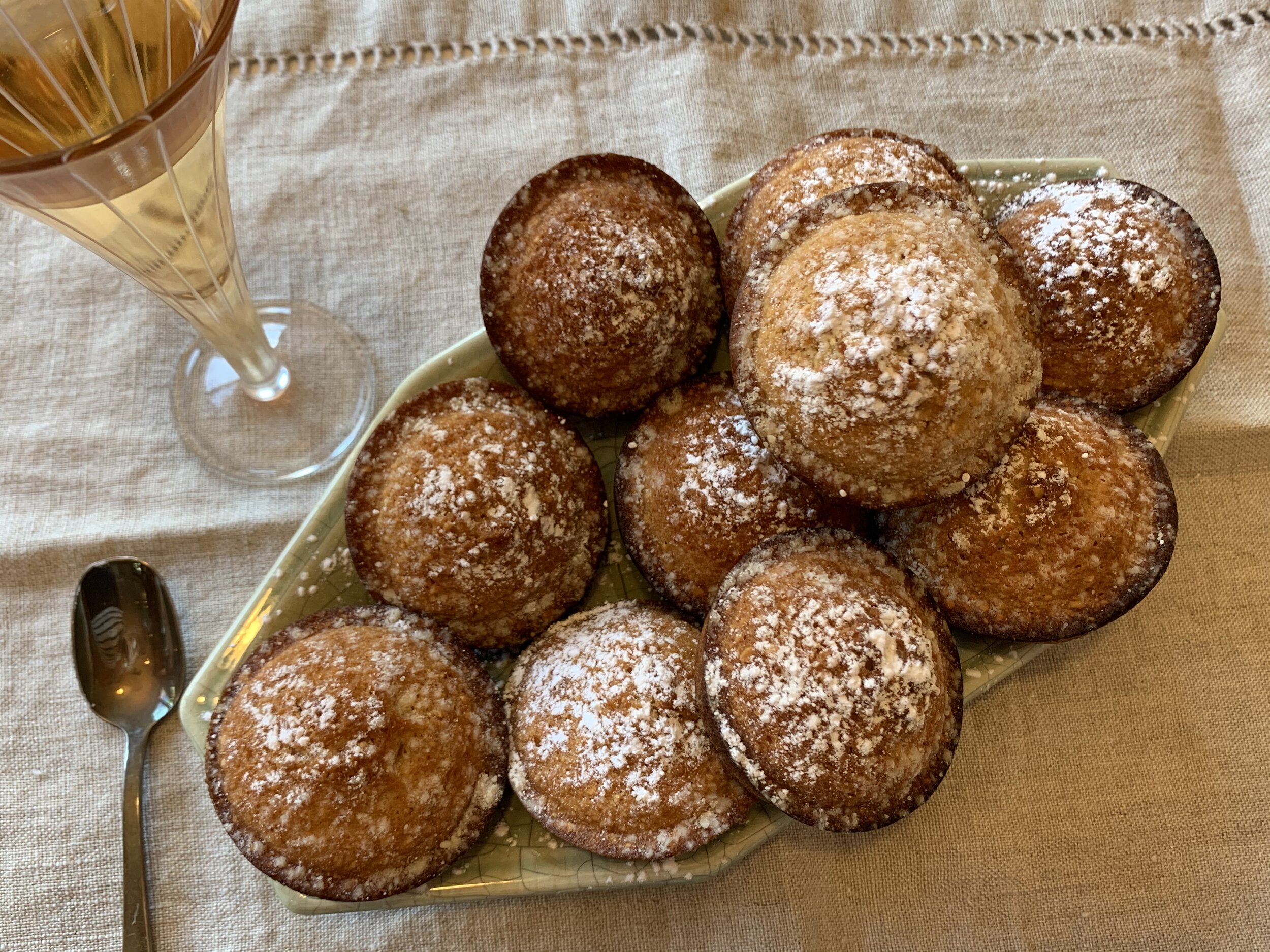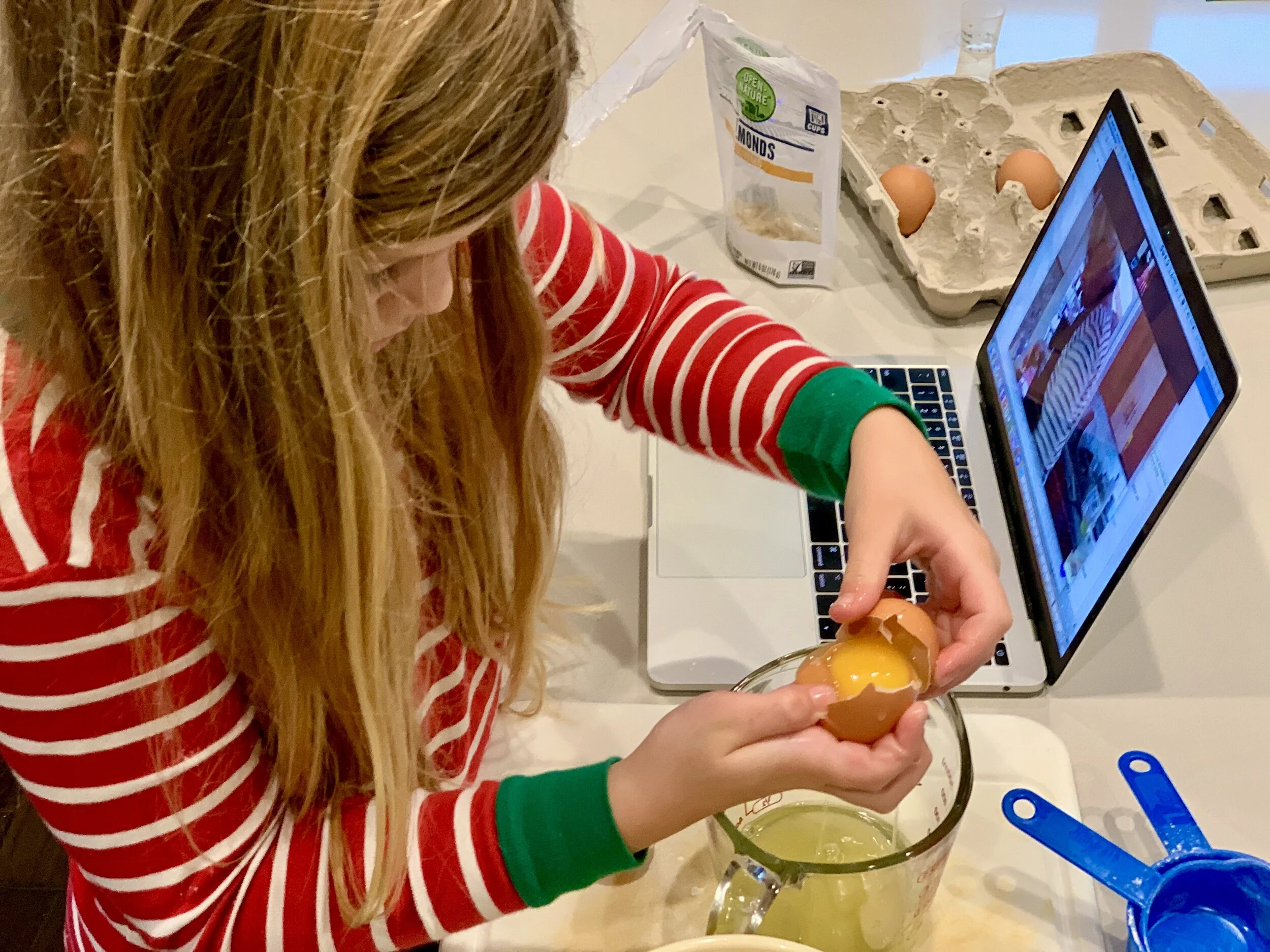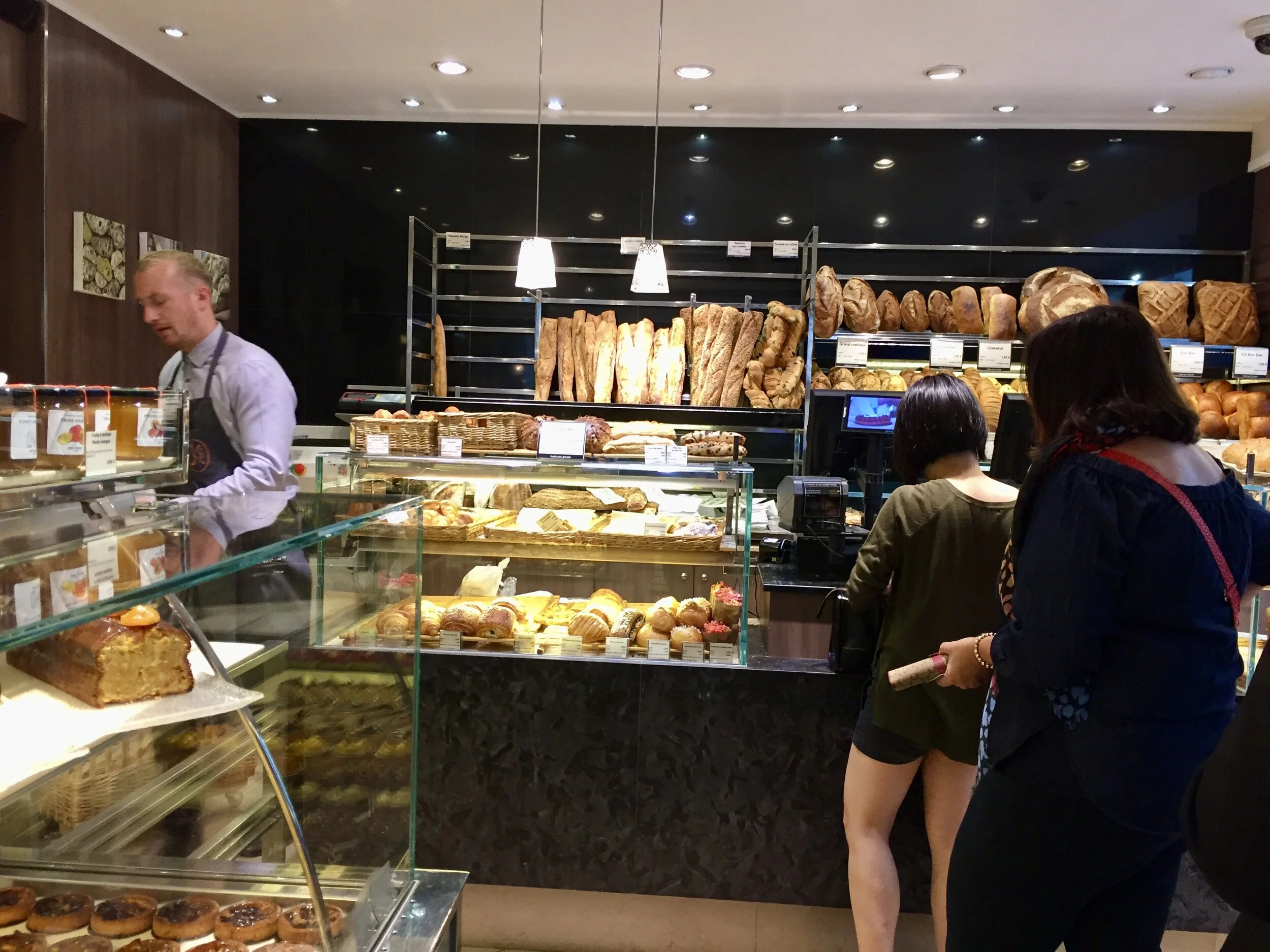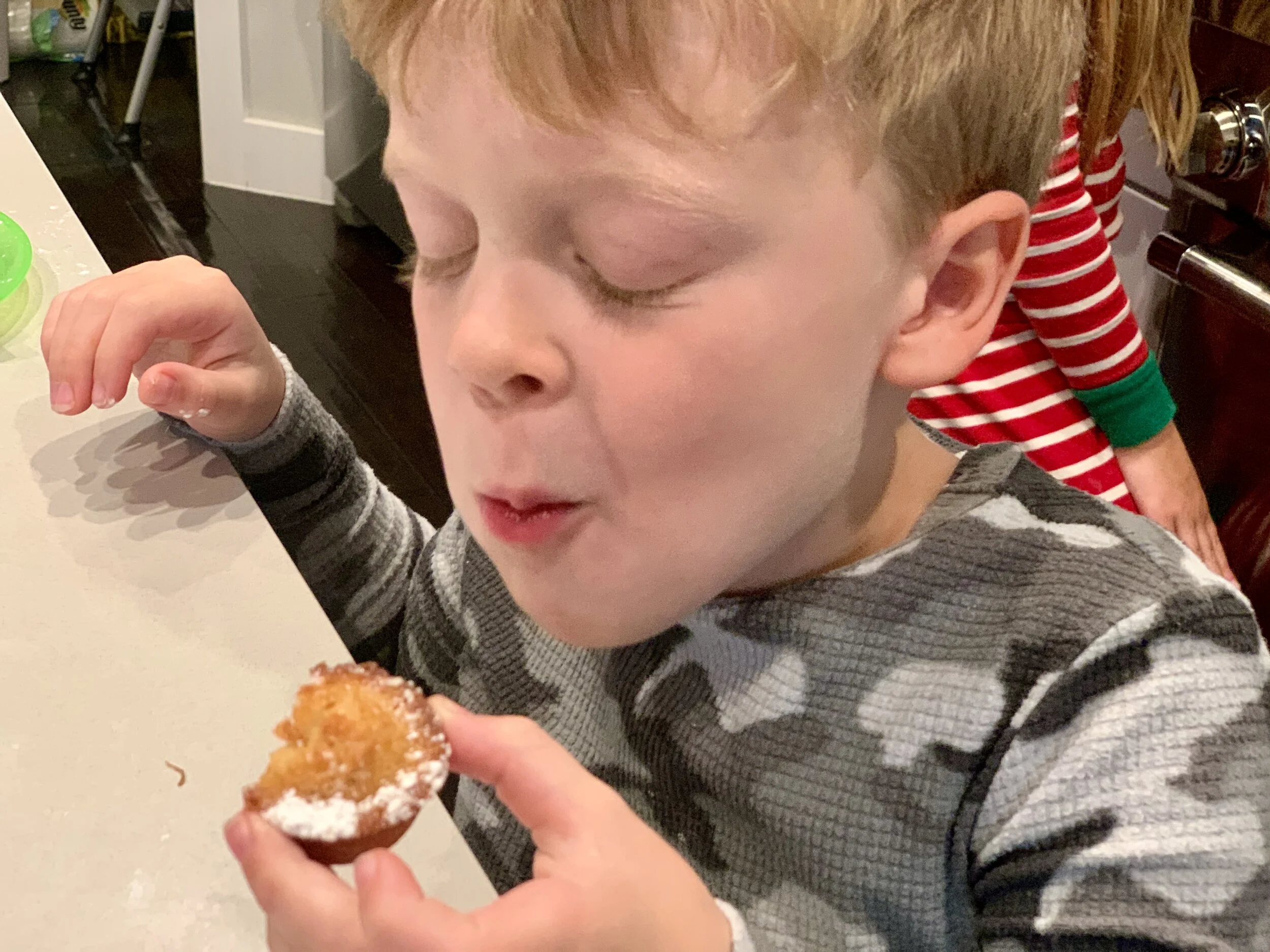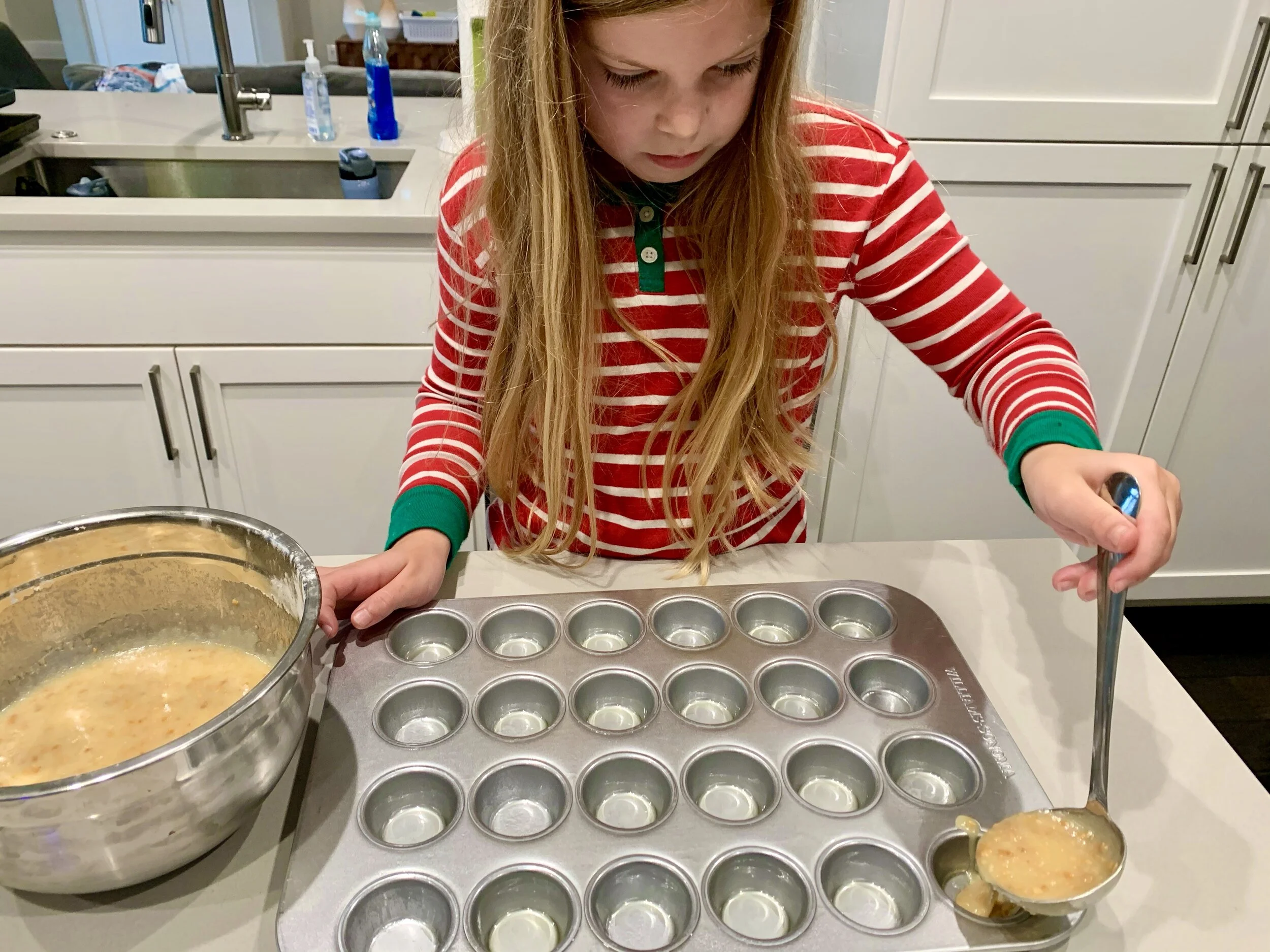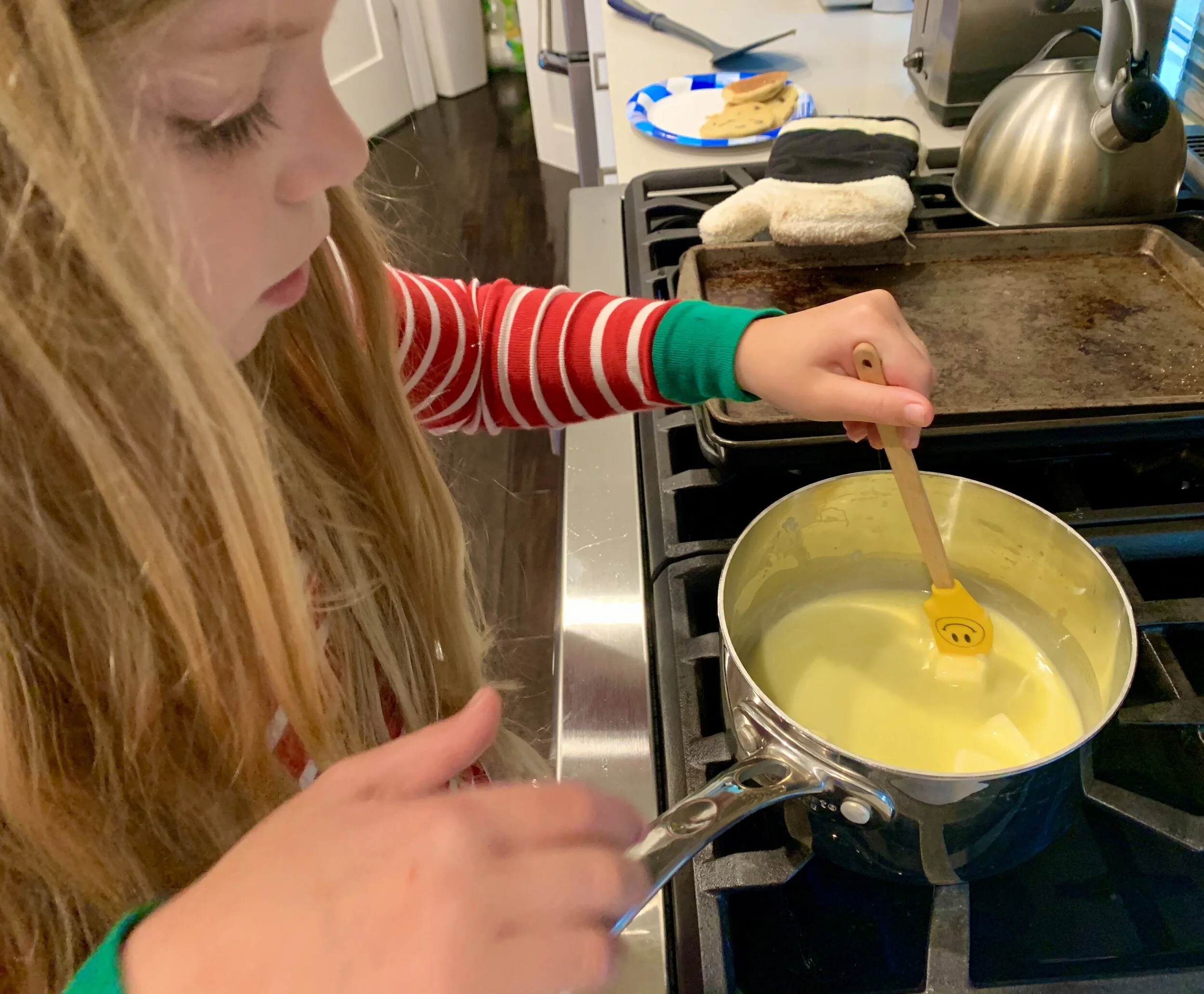Les Financiers: Granny Takes a Wild Ride
At this point, Piper is such a skilled baker that she could probably make these heavenly miniature French almond cakes all by herself. Her father may still be useful for handling hot ovens and reaching high shelves; and I’m awfully good at keeping up the patter and setting timers, but let’s face it—we can see the future and we are expendable.
For now, I’m content to pass along some useful recipes and stories that may strike her fancy later. Like the story of my wackiest job interview. The one in 2005, where I got a call from a stranger early Sunday morning, round trip tickets to Paris two days later, and two days after that boarded Air France for a three-day job interview. I wasn’t exactly sure what the job title “Chateau Representative” meant—but I knew I was overdue for an adventure after 30 years of child-rearing. I assumed lots of eating and drinking would be involved at the 100-acre estate where an old money British couple were running a famous cooking school in the summer.
Cloudy day au Pantheon
Before I took off, preparations had to be made. I scheduled a haircut and a manicure immédiatement. Next came wardrobe. My girlfriends were so buzzed by the mere idea that I was being flown to Paris that they lent me their pearls and fur-lined gloves. Then I got caught up in a shopping vortex, compensating for years of motherly self-sacrifice. I purchased a winter coat and the cashmere accessories to go with it, a black evening skirt for fancy dinners, black suede boots, silk pajamas and a matching robe. You don’t wear tattered jammies when sleeping au chateau.
When the plane landed at Charles de Gaulle airport, a light snow was falling. A driver whisked me off to Burgundy, where my new bosses were waiting to start the interview process at Chateau du Fey, the historic 17th century castle they happened to own.
La petite allée.
Even the ride there was magical. Out of the rear window, my mind wandered over desolate, romantic scenery. Rolling fields, stone farmhouses, little Peugeots, all rendered in misty shades of white and gray rolled by. After a short nap, I opened my eyes to a scene from a movie. The driveway, perfectly straight for about a mile, was covered with the finest pebbles and framed by gorgeous leafless oak allées. As we approached the gate, I saw that two stone lions, two round hedges, and two smaller houses framed the main house, creating a completely symmetrical tranquility.
La dame et moi.
My prospective bosses—there were two of them—came out to greet me, along with two huge dogs, a Dalmation and a Rhodesian Ridgeback from central casting. They were ruddy-cheeked, hearty people and they were ready to get down to business. But first they gave me 20 minutes to freshen up.
What followed were many rich meals, accompanied by wine and preceded by gin and tonics and chitchat. The propriétaires were an aristocratic British couple—the kind who lined up their wellies at a special place by the door and wore itchy wool sweaters under their proper woolen coats. They had their own private language, one in which asking direct questions and describing job tasks was déclassé.
By the second day, it was clear that the dogs understood more than I did about what was going on. Once, a large dog left his spot by the fireplace to walk up to me, place a very muddy paw on my black pants and stare into my eyes. Knowing that my interaction was being scrutinized, I brushed off the filthy paw and said in my chirpiest voice, “He’s a good dog, isn’t he?” When nobody answered, I figured I was paying the dry cleaning bill. Finally, after a particularly grueling dinner, I broke down and asked the question. “What exactly is this job?”
“You are to host,” said the man of the house. “You eat breakfast with the students and go over their schedule for the day.” In other words, while the two of them slept in, I would be cruise director for about twenty wealthy American retirees who loved to eat and drink but failed to learn French. The pay wasn’t much, but I figured I could keep my day job and take off for three weeks each summer to play camp counselor.
But that was not to be. On the last afternoon of the last day, the Queen broke the news that I was to cook that evening’s entrée. By the time I pointed out that cooking was nowhere in the job description, she had disappeared—like the Wicked Witch of the West.
The dish was a traditional sausage called caillettes. An ancient preparation, it called for many steps. Sheets of pig intestine needed to be soaked, rinsed and drained before spreading the delicate netting on a counter. Many meats, including liver, had to be chopped and passed through a meat grinder. Vegetables all needed to be trimmed, chopped and blanched before being sautéed for the stuffing. Between each step, I was instructed by the house cook to wash down the counters with bleach since the Queen could not stomach the sight of blood. In a restaurant kitchen, about five cooks and a dish washer would have labored over what ended up being a mini sausage pattie of weird meats. It was sickening.
Piper’s tests les financiers.
At dinner that night, after my dish was served, the Queen and all the guests rated it and me. Always a good test taker, I got the highest grades. But my taste for chateau life was fini. I packed up and caught a train for Paris the next morning, feeling liberated from a fantasy job that would have been a grand mistake.
Maison Kayser
To recover, I spent a magical day in Paris running around like a maniac. In those 24 hours on the Left Bank, I ate breakfast at Maison Kayser, visited the Musée D’Orsay for the first time, checked out chef Joel Robuchon’s latest bistro, shopped for gifts at La Maison du Chocolat and dined solo at a classy Vietnamese spot for dinner. Not a bad job interview, heh Piper?
Piper bakes like a pro.
The recipe I taught Piper last Sunday for financiers is easier than caillettes to make, and much more fun to eat. The classic French treat takes about 20 minutes to toss together and a batch bakes in about 20 minutes. She mostly did it herself, with a few tips about cracking the eggs—like working over a glass measuring cup for the whites, then slipping the yolks into a nearby bowl. As far as uses for the remaining yolks, Joe suggests making a Carbonara sauce for dinner. Parfait!
Back, when I had a full house, financiers were my go-to for a quick, easy dessert to accompany ice cream or ices in the summer, or to dip in chocolate in the winter. If you’ve dined in haute establishments in France, an even smaller portion is sometimes brought out on a silver tray along with petit bonbons or candied orange peel to alleviate the pain of l’addition.
Piper’s brother Finn, who often joins us at exactly the moment the oven timer goes off, adored them. He popped two in his mouth the moment they were cool enough to handle and declared with great authority, “These are a 4.5 out of 5!” I give them a 5.
RECIPE
Financiers
1 cup slivered almonds
1 ½ cups confectioners sugar
½ cup cake flour
salt
12 Tbsps (1 ½ sticks) unsalted butter
¾ cup egg whites (about 6)
Heat the oven to 350 F. Generously butter or spray a mini muffin pan.
Spread the almonds on a baking sheet and toast in the oven till golden, about 12 minutes. Then turn the oven up to 450 F.
Place the nuts in a food processor or small grinder, and process until finely ground, being careful not to over process. Add 1 ¼ cups of the sugar, flour and a pinch of salt if the container is big enough and process until well blended. Or transfer the nuts to a large bowl, add ingredients and mix by hand.
She doesn’t need much help.
Melt the butter in a small pan.
Pour the egg whites into nut mixture and stir well. Stir in the melted butter until smooth. Ladle the batter into prepared muffin pans, till about ⅔ full.
Bake for 7 minutes. Reduce the heat to 400 F and bake 7 minutes longer. Turn the oven off and let the pan rest in the oven 5 minutes. The muffins will be golden on the edges and peaked in the center. Remove from oven and let cool in pan 10 minutes.
Turn over to remove pastries. Set upright and when cool, sprinkle with remaining confectioners sugar. Store in an airtight container. Makes about a dozen.

